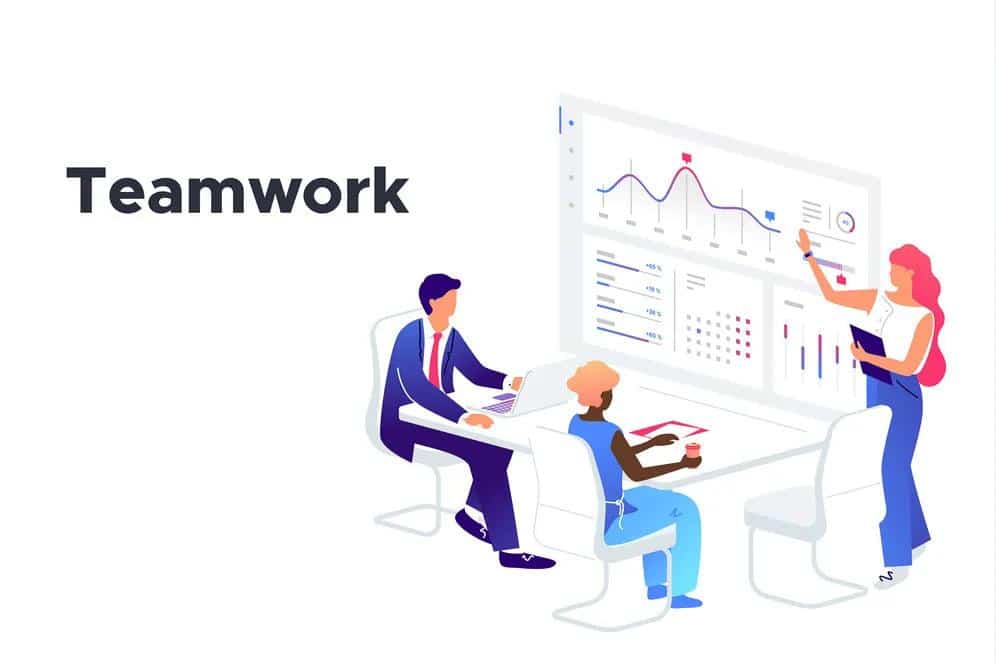
Watch the webinar recording
On April 12, CKGSB Global MBA Program led a webinar titled “A Global EdTech Unicorn: Before, during and after COVID-19”. Cindy Mi, Founder and CEO of VIPKID, CKGSB Global MBA alumna, shared her stories of starting her own business, with takeaways for start-ups highlighted, and the opportunities and challenges for VIPKID brought about by COVID-19. Prof. LI Yang, Associate Professor of Marketing at CKGSB, ZHOU Li, Assistant Dean of CKGSB, and Lina Ayenew, Founder of Education for Ethiopia, CKGSB Global MBA class of 2019, participated in the panel with Cindy, shedding light on the heated topics concerning online education industry and business during the pandemic. This webinar is supported by VIPKID, China-Australia Chamber of Commerce, and the Swiss-Chinese Chamber of Commerce.

Quotes from Cindy’s Keynote
Takeaways for start-ups
1. The first Lesson l learnt is that “the fool’s window” is really important. When you have an amazing business idea or business model, you probably want to keep it low profile instead of having the world copy what you do. When you are growing like 20-30%, it’s better to do your business low key to preserve the fool’s window for as long as possible.
2. The most important lesson I learnt is supply and demand. We always need to focus on the customers’ value, which in our world is the students’ success and the teachers’ success.
3. Quality, scale and efficiency. If you want to build a great company that will last, you got to have them all.
Entrepreneurial spirit
1. I always think beyond business. I always think about education for common good. Our mission is to inspire and empower every child for the future.
2. Professor LIU Jing at CKGSB said something to me, which I think is the milestone of me making the decision of building something new. He said: “If you can figure out a way to change things, why don’t you be the change you wish to see?”
3.The classroom hasn’t changed in the past 200 years. Students learn the same text books, and are evaluated in the same way, which I think is a very impersonalized learning experience. I made it my dream to build a global classroom with technology where children can be the best of themselves, and learn in different ways.
Notes of Panel Session
We’ve seen a surge in demand of online education as the pandemic spreads globally. How does your business respond to the impacts brought by COVID-19?
Cindy Mi: Before Chinese New Year, we started to feel the virus outbreak would have an impact on our operations, employees, teachers, and our students.
The first we did was that we asked our executives to come back to offices on the third day of the Chinese New Year. Though everyone was on holiday all over China, they came back without any hesitation. That made sure we can operate smoothly. We also made sure our 700,000 teachers can teach online with a well-functioning platform– it was a challenge – but our technology team and admin team did a good supporting job.
We donated 1.5 million online classes for students worldwide and also shared our internal online teaching platform with many schools for free. In March, we started making donations to New York and California to support our teachers, and also the local hospitals with essential medical supplies. We also made sure that students can have access to our mandarin learning program lingo bus.

Prof. LI Yang: It is a game changer for business around globe. Looking back, companies who survived such disasters are the ones who can respond swiftly, support their employees, and communicate with customers effectively.
During COVID-19, many companies donated and maintained communication with customers – they did not just donate resources, they are donating what they are good at (e.g., lululemon donated Yoga class, google provided online courses on ML and infrastructural IT learning). Good way to not only contribute, but also to show strength of these companies, to differentiate them from other companies. It is also about making the company warmer, more personal, closer to customers.
Although online educators were not hit as hard as players in other sectors, they should not be complacent for what they have achieved from the virus outbreak. They still need to communicate with customers and win the battle of branding. They need to come up with a way to do these things more efficiently and effectively.
![]()
ZHOU Li: Companies need to think about it in a long run. Think about a company’s responsibilities to stakeholders and shareholders.

Do you think the current boom of online education will continue after schools return to their offline operations? How to scale up?
Cindy Mi: Online education penetration is still not high. When parents get to see the benefits of online education, and to see that their kids can get personalized education and learn more efficiently with the help of our AI tutors, they will be impressed. There is sustainable value of online education driven by technology. I think one-on-one personalized online learning business models can be scalable. For example our referral system is very effective to help us acquire students.
The right passion from our team is also important. We think what we have is not enough, and we ask ourselves every day: what value can we give to our students and parents?

Prof. LI Yang: scalability means the company can keep the marginal cost low while increasing its revenue, and can grow quickly.
1) Target market: finding the target market is crucial. The success of VIPKID is one of the earliest companies in China that focuses on online English teaching with a right target market when everyone started to move online for education.
2) Standardization: people are looking for products, not so much for solution. Selling products is much cheaper than selling solutions which involve extra labour. Standardisation is key to product-selling.
3) Testing: start-ups have new ideas every day, how to quickly and efficiently testing new ideas is key to the success of a startup.
4) Outsourcing: startups should concentrate their resources on essential parts, and outsource the non-strategic operations.
5) Marketing: how to get the message out? People face much information every day, how to target customers to see your company is a challenging question. Companies should be smart and flexible – there’s no single golden bullet to solve the situation. For example, we think word of mouth is important. But for low cost products, it may not work. However, for EdTech such as VIPKID, word of mouth is important.
6) Automation: companies should automate as much as possible. It is much harder for labour-intensive companies to scale up.
7) Define your business as an open-ended business: no one is perfect at the start. No need to have a perfect business model in the beginning, the key is to improve continuously.
8) Investment: work hard to attract investment, but also relish the money coming from outside. It is important to find money, but more important to know how to spend that money wisely. 
What has led to VIPKID’s success? How to recruit and maintain the eco-system of good teachers?
Cindy Mi:The secret of our success lies in the fact that my colleagues believe in our mission and they are passionate about what they do. And we always ask ourselves questions like ‘what can we do more’ and ‘what other values can we bring to students and parents’.
Also, we give credits to teachers. Many teachers don’t come to teaching profession for money. They want to be helpful and successful. I found the first 20 teachers myself, then we promote our education values to form a team of teacher heroes. We attract people who hold the same belief as ours. Teachers were gathered to form a supporting community and connect to students and parents on various social media platforms.
For example, teachers would post free videos to help explaining how teaching process works and share work experience. We also made sure that our teachers are well-respected, efficiently paid, and well taken care of. We have a website for teachers to post their questions. The ecosystem is very important.
ZHOU Li: Some people start their companies as if they are after some fashion but the companies would soon fail. I would say don’t start companies for fashion, do it out of passion.

How to view globalization at times like this as some people are advocating ‘decoupling’?
Cindy Mi: In this difficult time, we need a global classroom more than ever for mutual encouraging and supporting between teachers and students. It is love that keeps us alive during times like this.
![]()
Prof. LI Yang: Globalization takes a hard hit because of the pandemic, but I still keep some faith on globalization. If we look at some industries, for example, Internet is the least hit part in this process, the connections built based on internet will be able to survive the global turmoil. Internet companies are running by younger generations who use the same programming languages and tools everywhere and share similar business models. Internet industries will be most likely to further develop after the pandemic.

Does VIPKID have international ambitions? What requirements need to be fulfilled to look at Africa as a viable market?
Cindy Mi: You need to really know the market and the country before investing. But right now I have limited knowledge of clients’ demand in Africa. But I believe there must be a lot opportunities. VIPKID would be happy to partner with local companies to explore. And CKGSB has an extensive alumni network, I’m sure there is someone in the network who knows African market well and is worth working with. Happy to learn more about the market and explore more opportunities with liable partners.
How did you find you partners, first team?
Cindy Mi: Lucky to have people willing to join me in the ‘garage’ phase. 2 of my MBA classmates and then 5 others joined me. We all shared our passion for our company’s mission. Aside from the skills, we are willing to believe in our mission and to adapt and make it happen.

How does CKGSB Global MBA Program help their students to start their own businesses, and want do you think about entrepreneurship?
ZHOU Li: CKGSB Global MBA helps students in many ways. For example, we are tutoring our students to build and polish their business plan. We think entrepreneurship is not only for people who start companies but also for those who work for responsible companies as well.
![]()
Lina Ayenew: Yes, we are guided to work on our ‘MVP’, minimum viable project. I believe for an MVP to work, it needs to be sustainable. Being self-sustaining is important.
I think the world is connected. A lot of our problems are shared problems, so we want to find more shared solutions.